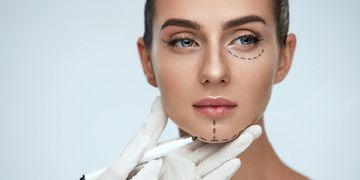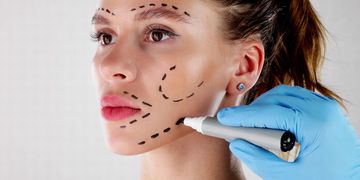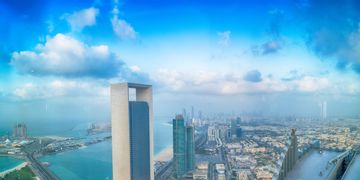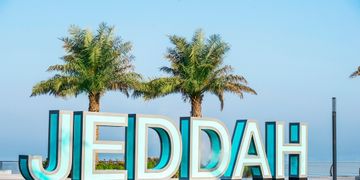Tajmeeli releases original data about growing cosmetic surgery market in the Arab World
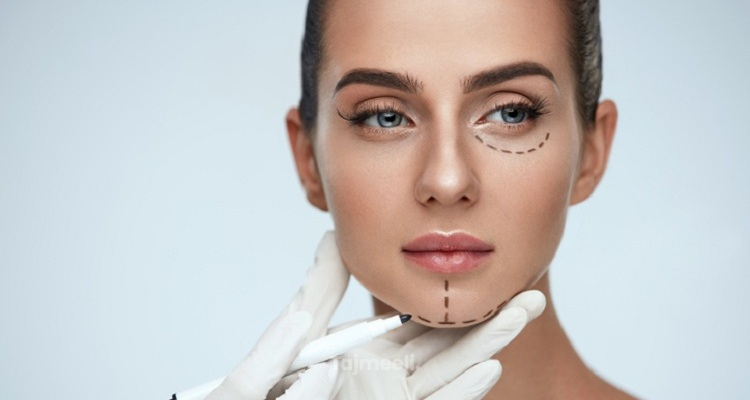
Tajmeeli recently completed our first survey on cosmetic and plastic surgery in the Middle East. In 2018 Tajmeeli had 5.6 million Arabic speakers interested in cosmetic procedures visit Tajmeeli.com and many of the most interested users submitted inquires about having a cosmetic procedure. Based on aggregated data from real user inquiries we put together some interesting statistics about what Arabic speakers are interested in regards to having a cosmetic procedure. The results identified which procedures are in demand and where, and revealed some of the factors driving growth in cosmetic surgery in the Arab world. These are our findings.
Hair transplants are the most requested procedure
Turkey has long been known as a destination for hair transplants, and the procedure remains popular throughout the region. Hair is clearly important, with beard transplants making it into the top eight, at number 8.
Going bald is traumatic and can happen at a much younger age than expected. Hair transplants mean this doesn’t need to be a permanent condition. The popularity of the procedure was highlighted in a recent report naming Turkey as the top destination for hair transplants in Europe, and third in the world. Hair transplant techniques have advanced and are now less invasive, making the procedure less painful and more affordable.
Rhinoplasty and liposuction were the second and third most popular procedures.
According to the International Society for Aesthetic Plastic Surgeons, rhinoplasty was the eighth most performed procedure worldwide in 2017. In the Arab world rhinoplasty is near the top of the cosmetic surgery list.
The popularity of liposuction, stomach sleeve surgery (fourth) and tummy tucks (eighth) shows an increasing need to look slimmer and reduce body fat. As obesity increases there is more interest in procedures that reduce fat and remove excess skin after weight loss. The obesity problem in the Middle East has been described as shocking and Bahrain, Saudi Arabia and United Arab Emirates have been listed as three of the top ten obese countries in the world, so the popularity of these surgeries looks set to continue.
The popularity of dental implants, the fifth most requested procedure in the Middle East, may in part reflect the influence of social media where there could be peer pressure to show a smile with bright, white, straight teeth in photos. Dental implants don’t only have aesthetic qualities, they are easier to clean than a dental bridge.
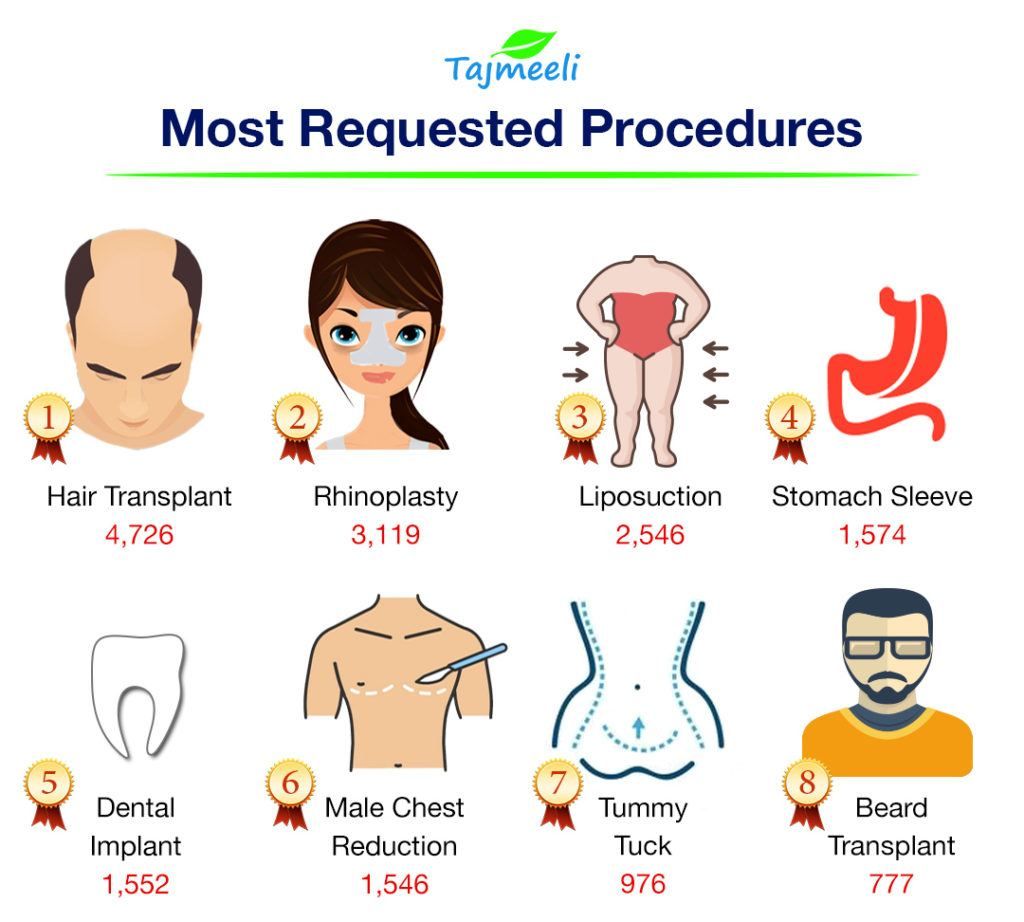
Three times more requests for procedures from Saudi Arabia
Saudi Arabia is the biggest kingdom in the region with a high annual income per person so it wasn’t surprising to find there are nearly three times more requests for plastic surgery here than in other Arab nations.
Last year the kingdom hosted the first Saudi Symposium for Cosmetic Surgery and Restoration and Dr Fuad Hashim, Consultant, Plastic Surgery, President of the World Society of Plastic Surgery in the Kingdom and Chairman of Scientific Committee, is reported as saying in the Saudi Gazette: “The Kingdom has been proactive in complex cosmetic medicine.” The publication also noted that the Saudi market has witnessed “a strong blossom of beauty clinics and hospitals.”
The rise in incomes over the past two decades has meant many more are able to pay for these procedures. Incomes in KSA rose by 87% between 2004 and 2017, according to World Bank data.
Egypt, the most populous Arab country has the second highest demand for procedures. “The most sought-after surgeries are face surgery, breast augmentation and tummy tucks. Face surgery is number one. Many also seek what we call minimally invasive procedures, such as Botox and fillers; basically, rejuvenation of the face,” said plastic surgeon Dr Karim W Rafla on Egypt today.
UAE ranked third and has actively promoted medical tourism. Many well known doctors such as those from the television reality show Dr 90210 have opened practices in Dubai and spend part of their time consulting in the region.
The survey results show some correlation between income, population size and number of requested procedures, with highly populated countries having higher numbers of requests. Saudi Arabia, with a population of around 33 million sits at the top, and although Egypt’s population is around three times larger at around 100 million, the annual income per person in Egypt is $2,412 compared to $20,849 in KSA. Morocco sits in fourth place, with a much lower average annual income of $3,007, but the population of over 35 million creates a demand. Germany makes the list because of the numbers of Arabs living in the country.
The wealth effect has made surgery more affordable and the increase in the number of centres has made it more accessible. The influence of social media stars like the Kardashians and Arab celebrities including Huda Kattan and Joelle Mardinian, who have 32 million and 9.5 million Instagram followers respectively have made cosmetic surgery more normal and desirable.
احصل على السعر المناسب لك لهذه العملية طلب عرض سعر
Top cities
In keeping with the results above, four of the top ten cities are in Saudi Arabia and two are in the UAE. Saudi Arabia has been listed as one of the top 25 places for plastic surgery in the world and Dubai was named the Middle East’s plastic surgery hub, with a reported 236 licenced plastic surgeons, 386 licenced dermatologists and 277 facilities in 2018.
Cairo in Egypt, Amman in Jordan and Muscat, Oman also feature in the Gulf’s top cities for plastic surgery.
Least popular procedures
We found that Arabs are quite selective in the surgery they are requesting and some procedures are not popular. These include the removal of bunions and varicose veins in the hands, young blood treatment and hormone therapy.
There’s no evidence to suggest conditions like bunions have lessened over time, but there could be a lack of awareness of the newer procedures such as young blood treatment. This procedure involves transfusing the blood of a younger person into an older person, with the aim of looking younger.
These procedures are associated with aging, and while many plastic surgery taboos no longer exist, the demand for plastic surgery in Gulf countries is primarily from the younger generation, confirmed in our survey and a study on plastic surgery in Saudi Arabia.
There is also a definite tangible benefit associated with the most requested procedures – rhinoplasty will change the appearance of the nose - treatments like young blood and hormone therapy aren’t outward actual physical adjustments.
Newest treatments gaining popularity
We were very interested to see what new treatments are becoming popular, and while some solved common problems, there were a few new, potentially controversial ones on the list.
Our survey showed that the face is a key area people want to improve with the Hollywood smile – white, straight teeth - gaining popularity, along with gum depigmentation that restores gums to a healthy pink colour.
Vampire facials, made famous by Kim Kardashian, involve applying platelet plasma rich (PRP) blood (which you can sometimes donate yourself) to your face that has been gently pricked with a small needle (microneedling). The idea is that that your face will rejuvenate and heal.
Less controversial is the stomach balloon – a new gastric weight-loss procedure usually performed on an outpatient basis through endoscopic surgery. The balloon can be removed, and the surgery is less invasive than other bariatric surgeries.
Eye colour change surgery is a permanent solution if you are unhappy with your eye colour. It means no more colour contacts and is a fairly new procedure. Morocco was home to the first eye colour change operation in Africa last year when brown eyes were changed to blue.
Mobile is the preferred contact method
Contact by phone is only slightly more popular than contact by Whatsapp, showing that Arabs in the Gulf are using mobile devices for contacts, information and research. Mobile is the preferred contact method for the youth, and this result ties in with observation that the younger generation is driving the growing interest in plastic surgery and cosmetic procedures.
احصل على السعر المناسب لك لهذه العملية طلب عرض سعر
Travel is on the cards, so is having treatment locally
We asked survey participants if they were prepared to or are planning to travel for cosmetic procedures. The yes and no’s were fairly evenly split, indicating many are happy with the facilities in their areas, but are also equally prepared to travel.
Cost and locally available procedures can influence the decision to travel.
Although incomes have risen in the region, plastic surgery is not cheap and when the cost of a procedure, care and travel are cheaper than having the procedure locally it makes economic sense to travel. Another factor we consider relevant is that because procedures weren’t always as widely available in the region, travel for cosmetic surgery was fairly common.
So while many prefer to have procedures locally, many will travel and regard it as normal to do so.
These results also reflect the trend that plastic surgery is coming to the people, rather than the people having to travel for surgery and surgeons are finding enough demand to justify the costs of setting up a centre or taking consulting rooms in different cities.

Travel destinations
These findings may surprise some because they showed that the places where procedures are most in demand locally, Saudi Arabia and UAE, didn’t feature as top cosmetic surgery travel destinations in the Arab world. Only 4.2 percent of respondents were prepared to travel to the UAE.
Turkey remains a top destination, and competes with many international destinations on price. A 2017 report found that 5,000 medical tourists fly to the country each month for hair transplants.
Egypt is the second most popular destination for several reasons – numerous procedures are offered by good surgeons at a low cost, and it is a much-visited holiday destination so travel to the country is commonplace.
Are you interested in having a procedure
We wanted to double check that interest in plastic surgery is growing and asked participants about their level of interest. Some had already planned to have a procedure in a short time frame, and some were planning something in the next six months.
Our survey found a lot more women were interested than men, but many of the procedures in demand deal with male issues. Globally 92 percent of procedures are for women, but in the Arab world there seems to be a more even split between men and women undergoing procedures.
Younger people driving growth
70% of those interested in cosmetic procedures are aged 18 to 34, one of the clearest indicators that the youth are driving growth in the industry. This could be healthy for the industry if they retain their interest over the years, and we could see more demand for anti-aging procedures as this generation grows older. We need to take into account that the youth (under 30) make up nearly two thirds of the total population in some Gulf countries, so they will have a huge impact on surveys like this one.
احصل على السعر المناسب لك لهذه العملية طلب عرض سعر
Look good, feel good
The growing interest in plastic surgery was clear from the many responses we received. People, in particular young people, want to look good and are comfortable undergoing surgery to achieve the results they are looking for. In part this has been driven by rising incomes and social media trends, but it’s also about feeling good and confident in your appearance. The survey shows that plastic surgery in the Arab world is more about looking good today than anti-aging treatments. Plastic surgery has become more normal, and is no longer the exception, and rising incomes, awareness and availability are increasing demand for procedures.
See the full infographic of data we collected below:
Data from this article and the infographics contained in it were compiled by IstiZada our sister company that specializes in Arabic SEO and Dubai SEO.
